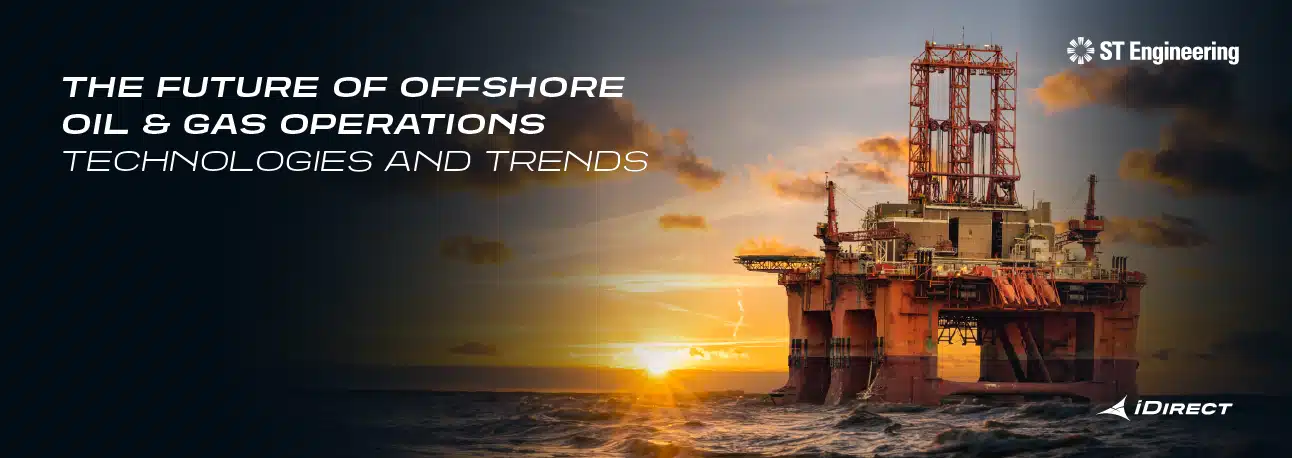The maritime industry is undergoing a profound transformation fueled by rapid advancements in technology. Smart solutions such as Artificial Intelligence (AI) are revolutionizing operations, while concerns around cybersecurity underscore the importance of resilience. This blog explores how these innovations and requirements are shaping the future of maritime operations.
Transforming Operations with Artificial Intelligence, Automation and Analytics
AI is likely the defining advancement of an era of rapid technological change. For the maritime sector as with all other facets of life, AI is providing powerful tools for optimization and decision-making. Machine learning algorithms can process vast amounts of data in real time to predict potential failures, optimize oil and gas separation and energy usage patterns, and even reduce fuel consumption. The ability to analyze historical data combined with real-time conditions ensures more informed decisions that improve overall performance.
Advanced analytics tools allow companies to identify bottlenecks and inefficiencies in their operations. Predictive analytics help operators plan for potential disruptions, such as weather changes or structural asset monitoring, long before they occur. These insights ensure smoother logistics, reduce costs, and improve customer satisfaction.
Rigs and vessels outfitted with sensors enable real-time monitoring of everything from engine performance to weather conditions. When the data show anomalies in equipment performance, this can trigger a series of processes and allow for predictive maintenance. This not only reduces costly repairs and unexpected downtime but also enhances safety at sea by addressing potential issues before they escalate into serious faults.
Digital twins, virtual representations of physical assets or systems, will become a central pillar to maximizing the benefits of AI, automation and analytics. These digital replicas use real-time data from sensors to simulate the performance of critical engines or equipment, under various conditions. Operators can simulate potential failures or explore the impacts of adjustments without disrupting actual workflows.
AI is poised to play an even larger role in maritime operations in the coming years. Autonomous decision-making systems powered by robust AI algorithms will manage complex challenges, such as optimizing dynamic positioning systems for stability in unstable conditions. The combination of human oversight and AI-driven guidance promises a future where decisions are faster, better-informed, and more sustainable.
Increasing Cybersecurity & Digital Resilience
Recent years have seen a surge in attacks targeting the maritime sector, including ransomware incidents, GPS spoofing, and unauthorized access to shipboard systems. With many vessels still reliant on outdated software and insufficient safeguards, hackers are targeting vulnerabilities, putting supply chains, safety, and global trade flows at risk.
As the maritime industry becomes more interconnected, it also becomes more vulnerable to cyber threats. With increasing reliance on onboard technology, communication networks, and cloud-based systems, robust cybersecurity and digital resilience are no longer optional.
To combat these threats, maritime operators need to implement multi-layered cybersecurity measures. Encryption of data, regular software updates, and access control protocols significantly reduce the risk of unauthorized breaches. Additionally, fostering cybersecurity awareness among crews, as well as conducting regular drills and audits, enhances preparedness. Incorporating AI-driven threat detection tools adds another layer of protection by identifying and neutralizing suspicious activities before they escalate.
Those ready to adopt these trends and technologies will not just survive but thrive in a rapidly evolving maritime landscape.
About ST Engineering iDirect
Milestones in AI, Automation and Analytics
At ST Engineering iDirect, we are identifying high-value use cases in order to provide strategic input on product innovation and development. We are also driving collaboration that advances industry standards and best practices. We are currently demonstrating the following use cases:
- Zero-Touch Adaptive Coding and Modulation: Optimization of channel performance and real-time adjustments
- AI-Powered Anomaly Detection: Early detection of network impacting activities such as rain fade and noise to reduce system disruptions
- AI-Based Network Assistant: Enables smarter, faster interactions for improved network operational metrics
New, Secure Ground System Architecture
At the center of delivering on AI and automation capabilities is the cloud-native architecture of our new satellite communications ground system, Intuition. Leveraging the characteristics of cloud deployments, we will drive scalability, resiliency and deliver cost effective solutions for our customers. A software-centric approach dramatically enhances the ability to support a ‘secure by design’. These best practices are no longer just for sovereign or government networks anymore. They are imperative for commercial networks as well.
Intuition also offers our direct customers, who are satellite and network operators and service providers, with increasingly comprehensive multi-orbit capabilities on a standards-based platform with numerous business models enabled to fit today’s complex requirements. Intuition empowers operators and service providers with next-generation satellite communications applications and technology for maritime and oil and gas industries.
More information on these initiatives is available at our website: www.idirect.net.

